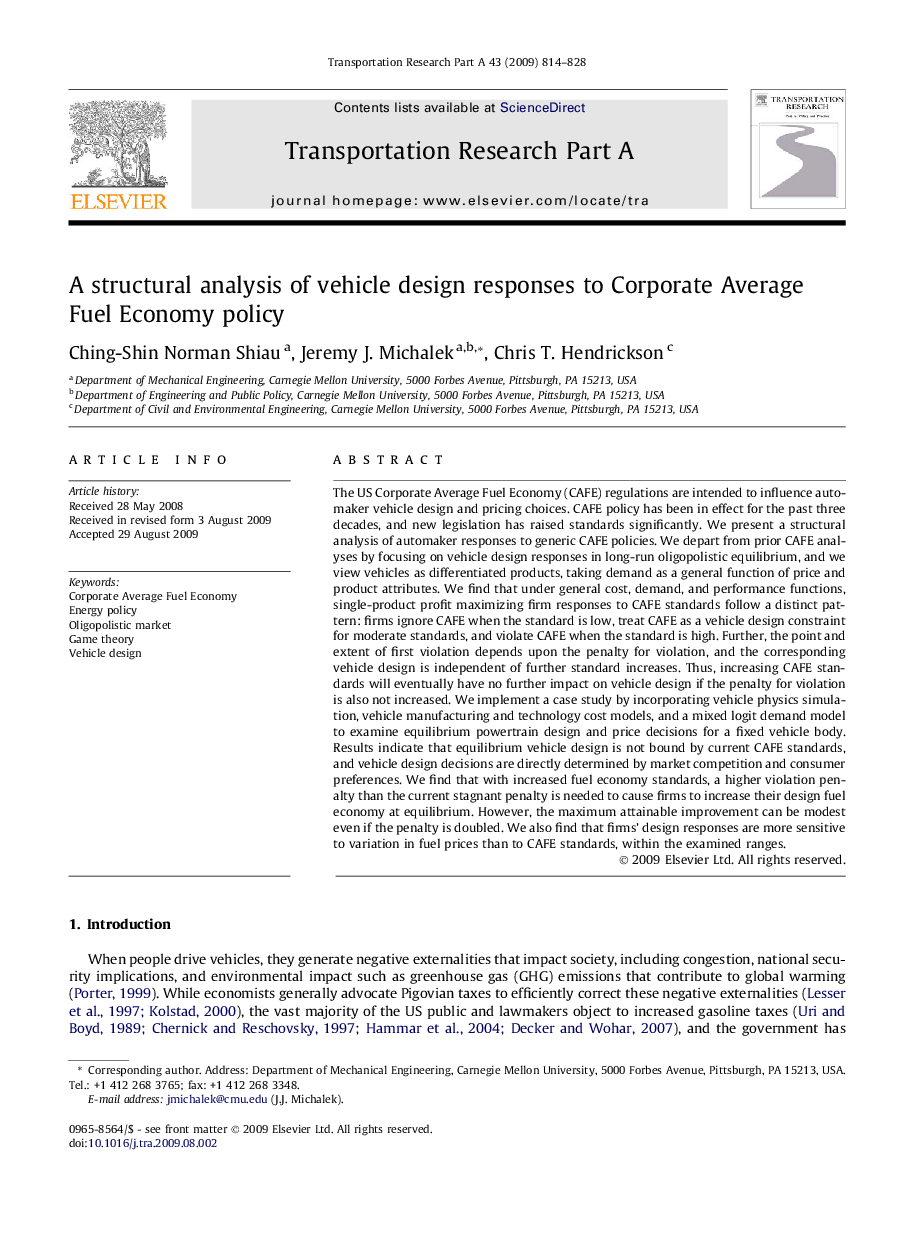| کد مقاله | کد نشریه | سال انتشار | مقاله انگلیسی | نسخه تمام متن |
|---|---|---|---|---|
| 311378 | 533901 | 2009 | 15 صفحه PDF | دانلود رایگان |

The US Corporate Average Fuel Economy (CAFE) regulations are intended to influence automaker vehicle design and pricing choices. CAFE policy has been in effect for the past three decades, and new legislation has raised standards significantly. We present a structural analysis of automaker responses to generic CAFE policies. We depart from prior CAFE analyses by focusing on vehicle design responses in long-run oligopolistic equilibrium, and we view vehicles as differentiated products, taking demand as a general function of price and product attributes. We find that under general cost, demand, and performance functions, single-product profit maximizing firm responses to CAFE standards follow a distinct pattern: firms ignore CAFE when the standard is low, treat CAFE as a vehicle design constraint for moderate standards, and violate CAFE when the standard is high. Further, the point and extent of first violation depends upon the penalty for violation, and the corresponding vehicle design is independent of further standard increases. Thus, increasing CAFE standards will eventually have no further impact on vehicle design if the penalty for violation is also not increased. We implement a case study by incorporating vehicle physics simulation, vehicle manufacturing and technology cost models, and a mixed logit demand model to examine equilibrium powertrain design and price decisions for a fixed vehicle body. Results indicate that equilibrium vehicle design is not bound by current CAFE standards, and vehicle design decisions are directly determined by market competition and consumer preferences. We find that with increased fuel economy standards, a higher violation penalty than the current stagnant penalty is needed to cause firms to increase their design fuel economy at equilibrium. However, the maximum attainable improvement can be modest even if the penalty is doubled. We also find that firms’ design responses are more sensitive to variation in fuel prices than to CAFE standards, within the examined ranges.
Journal: Transportation Research Part A: Policy and Practice - Volume 43, Issues 9–10, November–December 2009, Pages 814–828